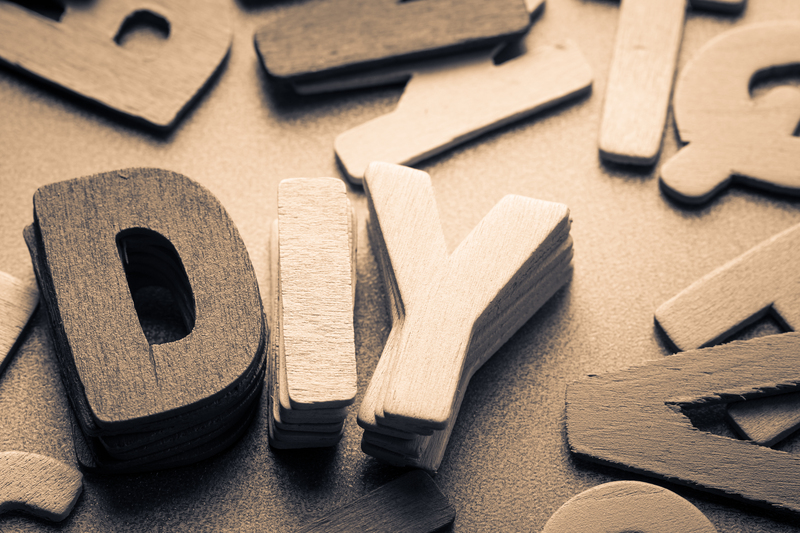Eco-Friendly Tips to Slash Your Plastic Use
Plastic pollution has become one of the most pressing environmental challenges of our era. Every year, millions of tons of plastic enter our oceans, harm wildlife, and break down into microplastics that can threaten human health. Fortunately, reducing your plastic footprint is achievable through conscious lifestyle changes. This comprehensive guide provides eco-friendly tips to slash your plastic use and promote a sustainable future for all.

Why Reducing Plastic Use Matters
Plastics are made from non-renewable fossil fuels and can take hundreds of years to decompose. The environmental impacts range from clogged waterways and poisoned marine life to potential health risks for humans. By committing to using less plastic, each individual can help reduce demand, prevent pollution, and set a powerful example for others.
Understanding the Different Types of Plastics
- Single-use plastics: Items intended for one use, such as straws, utensils, and shopping bags.
- Microplastics: Small plastic fragments that enter food chains and water supplies.
- Packaging plastics: Used extensively in food and product packaging, often unnecessarily.
Now let's delve into the most effective and practical strategies to minimize plastic consumption and foster an eco-conscious lifestyle.
Top Eco-Friendly Tips to Slash Your Plastic Use
1. Bring Reusable Shopping Bags Everywhere
Plastic grocery bags are among the most common pollutants. Make it a habit to carry sturdy, reusable bags--made from canvas, cloth, or recycled materials--whenever you shop. Keep a few in your car, backpack, or purse to avoid forgetting them. Some supermarkets even reward customers for bringing their own bags, turning this tip into a win-win.
- Canvas and cotton bags: Durable, washable, and available in a variety of sizes.
- Foldable reusable bags: Compact and easy to store in small spaces.
2. Ditch Single-Use Plastics
One of the most impactful ways to reduce your plastic use is by eliminating single-use items from your daily routine. This includes plastic straws, cutlery, plates, and water bottles. Choose sustainable alternatives whenever possible.
- Stainless steel or bamboo straws: Long-lasting and easy to clean.
- Reusable water bottles: Made from glass, stainless steel, or BPA-free plastic alternatives.
- Travel cutlery kits: Perfect for meals on-the-go and available in bamboo or metal variants.
3. Opt for Bulk Shopping and Refillable Containers
Buying in bulk not only reduces packaging waste but often saves money. Bring your own containers or bags for grains, spices, coffee, and dried fruits. Many supermarkets and zero-waste stores offer bulk options for everyday products.
- Mason jars and glass containers for pantry staples.
- Reusable produce bags for fruits and vegetables.
4. Say No to Excessive Packaging
Packaged foods and products contribute significantly to plastic waste. Choose brands that use minimal or biodegradable packaging and let stores know that excessive packaging is unacceptable through feedback or social media.
- Support eco-conscious companies: They invest in compostable or recyclable materials.
5. Switch to Bar Soap and Shampoo Bars
Liquid soaps often come in plastic bottles, whereas bar soaps require little to no packaging. Today, high-quality shampoo and conditioner bars are widely available, offering a luxurious and eco-friendly alternative to traditional plastic bottles.
- Look for: Local artisanal soap makers who use natural ingredients and avoid synthetic fragrances.
6. Make Your Own Cleaning Products
Store-bought cleaning products tend to come in single-use plastic containers. Making your own eco-friendly cleaners--using ingredients like vinegar, baking soda, and lemon--not only cuts down on plastic waste but is also better for your health and the planet.
- DIY cleaner recipes: Mix equal parts white vinegar and water for a simple all-purpose spray.
- Use reusable spray bottles instead of disposable ones.
7. Choose Plastic-Free Personal Care Products
Traditional toothbrushes, floss, and razors are major contributors to plastic pollution. Look for plastic-free alternatives:
- Bamboo toothbrushes with compostable handles.
- Silk or biodegradable dental floss.
- Stainless steel safety razors that last for years.
8. Carry Your Own Coffee Cup
Takeaway cups may look like paper, but they usually contain a plastic lining. Invest in a reusable stainless steel or glass cup for your coffee fix. Many cafes offer discounts for bringing your own cup--benefitting both the environment and your wallet.
- Collapsible cups: Convenient for travel and fit easily in bags.
9. Avoid Microplastics in Cosmetics and Cleaning Products
Many scrubs, toothpastes, and even some detergents contain microbeads--tiny plastic particles that can wash into waterways. When shopping, check that the product is labeled as "microbead-free" or opt for natural exfoliants like sugar or oatmeal.
- Read ingredient lists: Avoid items listed as polyethylene or polypropylene.
10. Store Food Sustainably
Cling film, plastic wrap, and zip-top bags are commonly used for food storage. Replace these with:
- Beeswax wraps: Reusable, biodegradable, and ideal for most perishables.
- Glass or stainless steel containers: Airtight and safe for reheating.
- Silicone food savers: Flexible and reusable for covering bowls and keeping produce fresh.
More Ways to Cut Down on Plastic Waste
Support Plastic-Free Movements and Legislation
Advocate for better policies in your community by supporting bans on single-use plastics or encouraging local businesses to switch to sustainable options. Small changes can add up to significant results when communities take collective action.
Avoid Synthetic Clothing
Many clothes are made with polyester, nylon, and acrylic--synthetic fabrics that shed microplastics when washed. Whenever possible, choose natural fibers like cotton, linen, or wool. Use a microfiber-catching bag in your washing machine to help trap tiny fibers before they reach waterways.
- Buy secondhand: This extends the garment's lifespan and reduces demand for new production.
Host or Join Community Cleanups
Organize or participate in local cleanups at beaches, parks, or rivers. Removing plastics from the environment directly protects wildlife and raises public awareness about the scope of the problem--and can be a fun, rewarding way to bring people together.
Educate and Share Your Journey
Share your experiences in reducing plastic use with friends, family, and on social media. Education is a powerful tool for creating wider change and inspiring others to live more sustainably.
Frequently Asked Questions About Reducing Plastic Use
Does recycling really make a difference?
Recycling is important, but it is not a perfect solution. Only a fraction of plastics are effectively recycled; many end up in landfills or oceans. Reducing and reusing plastics is far more impactful than relying on recycling alone.
Are biodegradable plastics better for the environment?
Biodegradable or compostable plastics can break down faster, but only in specific industrial conditions--not in household compost or landfill. Whenever possible, prioritize natural, reusable materials over even these alternatives.
What are easy first steps to start using less plastic?
Start small--bring a reusable bag, swap your plastic water bottle for stainless steel, and remember your own coffee cup. Each habit builds momentum!
Benefits of Slashing Plastic Use
- Protects wildlife and marine life from entanglement and ingestion.
- Reduces toxins released during plastic production and degradation.
- Minimizes landfill overflow and lessens greenhouse gas emissions.
- Supports a cleaner, safer environment for future generations.

Conclusion: Every Small Change Counts
The journey to a plastic-free life doesn't require perfection--but every step counts. By embracing these eco-friendly tips to slash your plastic use, you contribute to a cleaner planet and inspire those around you. Whether it's through reusable bags, bulk shopping, or hosting a cleanup, your actions matter. Let's work together to create a sustainable, plastic-free future--one conscious choice at a time.
Ready to Begin Your Plastic-Free Journey?
Commit today to use less plastic and make eco-conscious decisions a permanent part of your lifestyle. Share this guide, lead by example, and become an advocate for the environment. A greener tomorrow starts with the choices you make today!